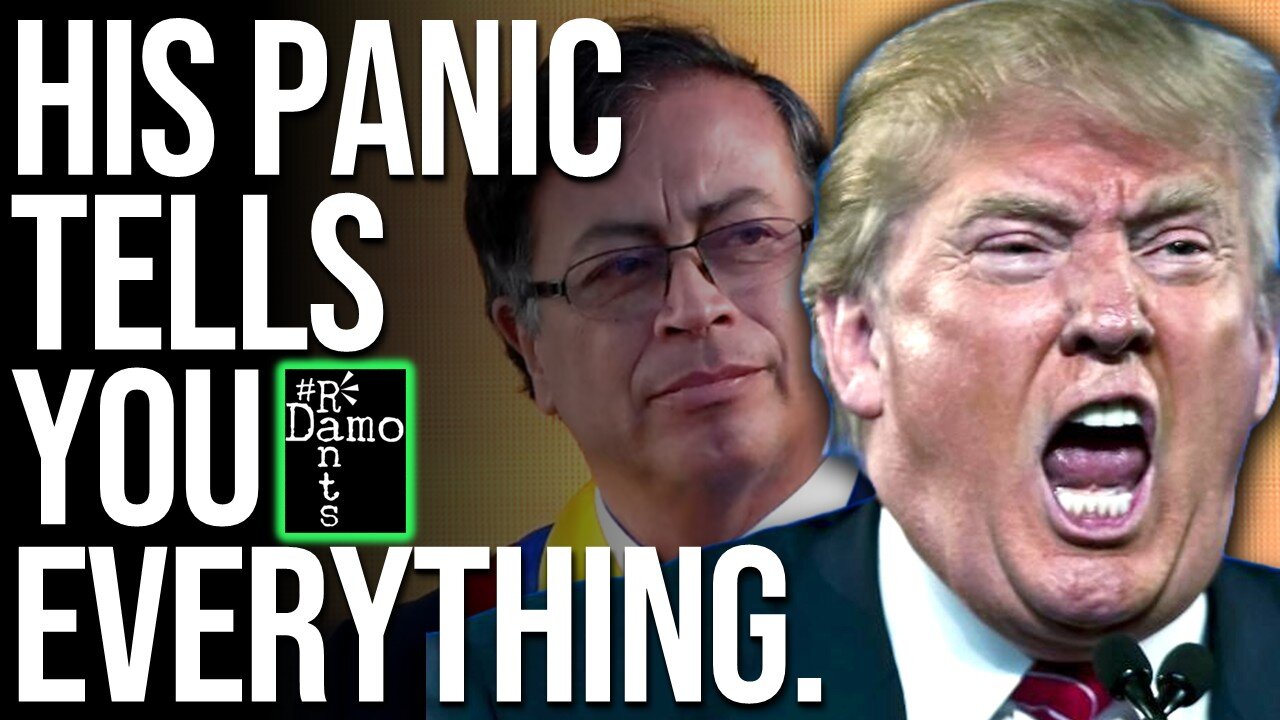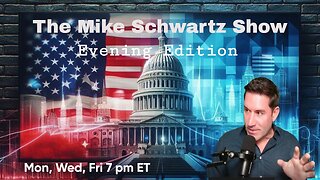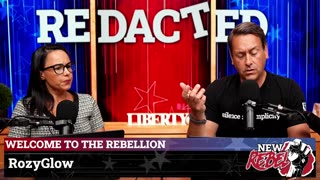Premium Only Content

Colombia Just Said No to Washington – And Trump Is Freaking Out
Right, so they’ll tell you this is just a “policy disagreement.” Just two governments having a little diplomatic wobble. Don’t fall for that. When a state that was treated as a reliable extension of Washington suddenly starts acting like it governs itself, the tone changes fast. Colombia says it won’t play courier for US pressure campaigns against Venezuela, and overnight the friendly talk of partnership gives way to warnings, aid threats, and character attacks. It’s amazing how quickly “valued ally” becomes “problem leader” the moment obedience to Trump isn’t guaranteed. And the reason it matters is simple: Colombia hasn’t done anything extreme. It has merely said no — publicly, clearly, and without apology. The United States now has to decide whether it can tolerate that. History tells us the answer has never come cheaply.
Right, so the relationship between Colombia and the United States is changing, and the shift isn’t subtle and it isn’t something that can be walked back with diplomatic pleasantries or joint statements about cooperation. It is structural. For decades, Washington treated Colombia as a stable, compliant pillar of its regional power network — the reliable partner, the security anchor, the proving ground for the drug war, the country whose military and intelligence systems were literally built to align with US strategic doctrine. It wasn’t just policy. It was architecture. The helicopters, the surveillance systems, the operational planning models, the officer training pipelines, even the political class media discourse around “security” — all of it assumed the same thing: Colombia would follow.
And then, Colombia didn’t.
When Gustavo Petro was elected, it wasn’t simply that Colombia elected a left government for the first time in its history. It was that the new government was willing to say, in plain language, something that every administration before it avoided: that the drug war had failed, that permanent militarisation was a dead end, and that Colombia would no longer act as a forward operating platform for someone else’s geopolitical agenda. Petro did not frame it as anti-Americanism. He framed it as sovereignty. And sovereignty, said in a country that Washington has long treated as strategically predictable, looks an awful lot like defiance and defiance to a bloviating man baby like Donald Trump, is utterly unacceptable.
Meanwhile, the United States has continued to escalate pressure on Venezuela. That pressure has taken multiple forms for over twenty years: sanctions, diplomatic isolation attempts, financial restrictions, political backing for opposition factions, and military operations presented under the banner of counter-narcotics enforcement, this is what they get for having the temerity to keep on electing left wing leaders. That has included of course maritime interdiction operations in waters off Venezuela that have resulted in multiple deaths. The United States describes those operations as lawful enforcement actions. United Nations human rights experts have raised serious concerns that some of those operations constitute extrajudicial killings because the individuals involved were not afforded due process, very difficult to get that from beyond the grave. That is the current legal and diplomatic dispute though — what Washington describes as enforcement, international observers describe as potentially unlawful killing.
This is where Colombia’s stance becomes decisive though, because the border between Colombia and Venezuela is not an abstract line on a map. It is one of the most socially interwoven borders in the hemisphere. Families live across it. Labour moves across it. Cultural identity crosses it. Armed groups move across it. And when conflict magnifies in Venezuela, displacement, insecurity and economic shock waves do not stop at the border. They enter Colombia immediately. Petro made that point clearly: if Colombia participates in or assists destabilisation of Venezuela, Colombia will pay the price first and most severely. So Colombia refused. It stated that it would not participate in military, paramilitary or covert pressure operations directed across the border.
Trump did not like this. Washington did not treat this as neutrality. Washington treated it as obstruction. And once refusal is treated as obstruction, the conversation is no longer diplomatic disagreement — it becomes a question of power.
The tone shifted. US leadership moved from calling Colombia a valued partner to calling Petro unreliable, then adversarial, then using language aimed at delegitimising him personally. Colombia responded by recalling its ambassador. That move is not symbolic. Recalling an ambassador signals that a relationship is no longer functioning within normal diplomatic boundaries and indeed how can it when you’re dealing with Donald Trump? It signals that trust has broken. It signals that the state is preparing for a different strategic footing.
At the same time, Colombia’s government, through legal representatives, raised concerns that a US maritime interdiction operation resulted in the deaths of Colombian nationals. The United States denies wrongdoing. Colombia has sought legal channels to examine the incident. And that is where the dispute shifts from political rhetoric into judicial framing. Once an international legal question is raised, the margin for quiet back-channel reconciliation narrows. The disagreement becomes formal.
This is where Colombia’s internal security architecture enters the picture. Because while Colombia is asserting sovereignty in foreign policy, its military infrastructure still carries deep material dependencies on US support — especially aviation maintenance, logistics coordination and intelligence systems. Petro acknowledged publicly that cutting civilian aid would make little difference, but reductions in security cooperation would. He was not admitting weakness. He was stating reality. And reality is the most dangerous thing to state in a geopolitical confrontation, because it removes illusion.
So we now have a country asserting sovereignty while knowing that asserting sovereignty comes at cost. And we have a global power accustomed to compliance deciding whether it will tolerate defiance. And we have a third pressure point pressing outward — the escalated US operation posture toward Venezuela, where any move from maritime enforcement into territorial or land-adjacent activity would immediately produce consequences on the Colombian border.
This is how escalation begins in real life. Not with a dramatic act. Not with a declaration. Not with an invasion plan. Escalation begins when the assumption of obedience ends. Because once a state that was treated as compliant demonstrates that it is not, the power that expected compliance must decide whether to accept that outcome or to force the issue. And at this point we know that US history is what it is.
Colombia has made its position clear. The United States has not yet accepted it. And Venezuela is the arena where that contradiction is exposed the most.
Now the question becomes whether Colombia can maintain sovereignty under the pressure it has acknowledged it is under — not in speeches, not in theory, but while holding its internal security posture together without returning to dependence.
And that is where we go next.
Colombia’s ability to hold this line depends on something most commentary skips over: whether the state can maintain internal security without relying on the US military architecture it inherited. Because sovereignty doesn’t mean very much if the government cannot guarantee the functioning of the state inside its own territory. And that’s where this gets difficult, because Colombia’s security landscape is not clean, not stable, and not uniform.
There are still armed dissident groups operating in multiple regions, groups that splintered away rather than accept the demobilisation terms of the peace agreement. There are paramilitary successor organisations entrenched in strategic corridors tied to illegal mining, smuggling routes and territorial control. There are criminal networks embedded into local political and economic life in ways that are sometimes overt, sometimes hidden, but always present. And there are regions where the state’s capacity is not about deployment strength or headcount, but about the ability to sustain presence, logistics and surveillance — which is where US aviation and intelligence systems have historically mattered most.
Petro is not unaware of this. His administration has spoken openly about the need to negotiate peace, to invest in social infrastructure and to rebuild state legitimacy in regions historically left to private armed authority. But those are long-term structural reforms. What Colombia needs in the short term is the ability to hold territory and enforce the state’s authority without depending on US-provided operational scaffolding. That’s the real fight. Not ideological alignment. Not messaging. Not diplomatic signalling. The question is whether the Colombian state can function as a state while refusing strategic dependency.
This is the internal front. Sovereignty is not just a foreign policy position — it is the ability to govern one’s own territory in one’s own way without external approval. And on this front, Petro is walking a narrow and difficult line. He has to assert foreign policy independence while simultaneously ensuring that internal stability is not undermined in the process. Because if internal stability falters, the opposition will say exactly what they always say in Latin America when a government attempts to break from Washington’s line: “Look at the chaos. Your version of sovereignty is instability. We need the Americans back.”
And make no mistake — that message will be amplified everywhere. We’ve seen a classic example in Venezuela with the awarding of the Nobel Peace Prize to a Zionist cheerleader of the US who has begged them to invade her country. It will appear in the media networks aligned with established business and political interests. It will move through foreign policy think tanks as well. It will be recycled by right-wing politicians who never believed Colombia should govern itself. It will be framed as a pragmatic argument, as if subordination is sensible and sovereignty is reckless. The same line has been used in every Latin American country that has tried to assert independence since the Cold War. The same language. The same rhythm. “Stability,” they will say, “requires alignment.”
This is how pressure works when it does not wear a uniform. It does not arrive with tanks. It arrives with editorials, investor mood surveys, diplomatic statements about “shared security concerns,” and quiet warnings about credit ratings. It arrives dressed as caution, sobriety, responsibility. That is how the imposition of foreign power is sanitised in the twenty-first century. Not with coups in broad daylight, though of course they do still happen, 2014 and Ukraine immediately springs to mind. But also with narratives about what is “realistic.”
Which is why the decision to recall the ambassador matters. Because that moment made the break impossible to deny. That moment said: Colombia is not pretending the relationship is functioning. Colombia is not pretending to accept the role it has historically been assigned. Colombia is signalling that the terms of engagement must change.
And that means Washington now has a choice: adjust to a sovereign Colombia, or try to preserve the old hierarchy.
Everything depends on that choice, but most of us can probably hazard a guess which choice will be made.
But let’s play what ifs anyway: If Washington accepts that Colombia is an autonomous actor, the relationship becomes tense, complicated, negotiated — but stabilised. It becomes a relationship between two states, not between one state and an extension of its strategic apparatus. Colombia continues to secure its borders. The United States continues to pursue its policies toward Venezuela. The two states argue, maybe fiercely, but without coercion as the basis of the relationship.
If Washington does not accept Colombia’s autonomy, the pressure will intensify. Aid reduction moves from “considered” to enacted. Tariff adjustments move from “possible” to imposed. Security cooperation shifts from leverage to withdrawal. Intelligence sharing becomes conditional. And internal critics of Petro frame the results as evidence that independence is disorder.
This is the escalation ladder. It does not begin with soldiers. It begins with forcing a government into a position where it either yields or proves it will not. And that is where Colombia stands now: at the point where sovereignty is no longer a matter of speech but a matter of endurance.
Meanwhile, Venezuela is not static either, if anything they’re further along the same narrative. Pressure continues. The United States continues maritime interdiction. The Venezuelan government continues to secure border regions and maintain internal stability under sanctions that have strangled its economy. If pressure around Venezuela expands in any operational sense — whether in intelligence presence, naval posture or support to opposition networks — Colombia will feel the effects first, not because it is involved, but because it is next to the territory where the pressure is being exerted.
This is how Colombia becomes central even when it refuses to participate. Not because it is targeted. But because geography ensures that escalation anywhere near Venezuela carries consequences for Colombia as well. And refusing to cooperate with a strategy does not remove its impact.
So the question becomes: can Colombia hold the line on sovereignty while absorbing the consequences of proximity? And can the United States accept that Colombia is not a subordinate state, but a government that is choosing not to take part in conflict escalation?
We are not dealing with a hypothetical here. We are dealing with two conflicting realities. Colombia is acting like a sovereign state. The United States has not decided whether to acknowledge that, but is seemingly intent on not accepting it by its actions and by Trump’s rhetoric. And where this contradiction is most visible is the Venezuelan border.
Where this goes depends entirely on who blinks first.
If Colombia retreats, the old hierarchy reasserts itself. I can’t see Petro going there, he’s been the biggest split from that Colombia has seen in years. If Colombia holds as I suspect it will, the regional balance of power shifts.
And now we come to the final step: what this means for Colombia’s future — and the future of the hemisphere.
What happens next is not a question of personalities or party labels. It has nothing to do with whether someone likes Petro or dislikes him, or whether one prefers Washington’s worldview to Bogotá’s. The issue now is structural. Colombia has crossed the threshold from being a strategic subordinate state to being a state asserting its own policy direction. Once that line is crossed, it does not return to where it was before. And the United States is now the actor deciding whether it can tolerate a Colombia that is no longer automatically aligned.
This is why the stakes feel heavy even though no war has actually broken out, and even though neither government is openly calling for confrontation, though Trump has gone as far as threatening ‘very serious action’ and referred to Petro as a ‘thug.’ He should check the mirror for more than just making sure his tangerine tan is even, because the conditions that kept conflict unthinkable have shifted. The assumption of obedience is gone. The mechanism for smoothing disagreements — the idea that Colombia would always eventually fall back in line — has broken. The relationship no longer has the stabilising function it did for two decades. And when stabilising mechanisms break in geopolitics, the consequences emerge later, not straight away.
The danger here is not that the United States will launch a dramatic military intervention in Colombia. That is not how modern power asserts itself in states that have been security partners, it’s not necessarily even Trump’s style, he much prefers sanctions and tariffs. The real danger is attritional pressure — pressure that gradually forces the state to either relinquish sovereignty in practice or accept economic and internal strain in order to maintain it. Pressure that moves through financing, trade access, investor agitation, diplomatic positioning, media framing, and the quiet withdrawal of military cooperation at critical points where the state relies on it. Pressure designed not to overthrow a government outright, but to make independence costly enough that a future government abandons it voluntarily.
This is why Petro’s position is not performative. It is not symbolic. It is strategic. If he retreats from sovereignty now, the precedent is permanent: Colombia may elect different leaders, but Colombia will not be allowed to exercise independent policy. If he holds, even under pressure, the precedent is the opposite: Colombia can act as a sovereign state even when Washington disapproves. That is what this confrontation is really about. Not Venezuela. Not trade. Not individual personalities. Sovereignty itself.
And sovereignty here is not defined by slogans or by diplomatic language or by how many flags you can stuff up your rear end. It is measured in whether Colombia continues to refuse participation in destabilisation efforts across the Venezuelan border, even when pressure escalates. It is measured in whether Colombia can maintain internal security without US operational support. It is measured in whether the government can absorb the political cost of economic or diplomatic retaliation. And it is measured in whether the Colombian public understands that this confrontation is about the right to self-govern, not about an argument between political camps.
If the government fails to communicate that clearly, the opposition will define the narrative for them. They will say that Petro “isolated” Colombia. They will say that Colombia is “risking stability.” They will say the United States is the guarantor of order, and that sovereignty is chaos. They will frame dependence as prudence. They will present autonomy as recklessness. And if internal insecurity coincides with any of this, they will use the situation to argue that the country must return to the old arrangement.
This is the domestic battlefield. And it is not won with military deployments. It is won with the public understanding the stakes. If the public understands that what is being contested is whether Colombia governs itself or is governed indirectly, the government holds the advantage. If the public only sees rising insecurity or economic strain, the advantage reverses. That is why maintaining internal stability is not just a policing task — it is the foundation of the political legitimacy of sovereignty.
Meanwhile, the United States will continue to pursue its pressure campaign against Venezuela. That campaign is not dependent on Colombian participation. But its consequences will continue to fall on Colombia’s side of the border. That is the geopolitical reality that forces difficult strategic decisions. Colombia cannot change its geography. What it can decide is whether it responds to pressure by submitting or by managing the consequences of independence. It has chosen the latter. And that choice means the old era of automatic alignment is over.
This is the moment where the future direction of the region is being set. If Colombia holds its sovereign stance, other states in Latin America that have long been told that independence is “unrealistic” will see that it is possible. If Colombia is forced back into alignment, the message is equally clear: independence will be punished, and the cost will be high. That is why Colombia matters now more than it has in decades. It is not simply one state making one policy decision. It is a test case for whether the hemisphere is still structured under the logic of US strategic dominance or whether it has entered a multipolar phase, where sovereignty is real rather than rhetorical.
Nothing dramatic needs to happen tomorrow for the stakes to be enormous. No border skirmish, no troop movement, no televised crisis. The confrontation is already underway because the relationship changed. The question now is whether Colombia has the political will to endure pressure and whether the United States is willing to accept the loss of automatic authority.
There is no guarantee of outcome here. There is only the reality that Colombia has chosen sovereignty, and that choice cannot be walked back without erasing the meaning of the government that made it. And there is the reality that the United States has not yet decided whether it is willing to accept a sovereign Colombia. That unresolved contradiction is the source of the tension. It is the hinge on which the region now turns.
But this is not the climax of the story either. It is the moment where the direction of travel becomes clear. Colombia has taken the step that changes the terms of its existence in Latin America. The United States is still deciding how to respond. Venezuela is the theatre where the pressure expresses itself the most right now. And the border is where the consequences will be felt first.
Of course it isn’t just versus the US that Colombia has come out swinging, its come against Israel too, especially following the interception of the Global Sumud Flotilla, Petro once more showing leadership where so many others make excuses for Israel instead, so get all the details of that story in this video recommendation here as your suggested next watch.
Please do also hit like, share and subscribe if you haven’t done so already so as to ensure you don’t miss out on all new daily content as well as spreading the word and helping to support the channel at the same time which is very much appreciated, holding power to account for ordinary working class people and I will hopefully catch you on the next vid. Cheers folks.
-
 LIVE
LIVE
Nerdrotic
12 hours agoNerdrotic at Night 528
422 watching -
 1:16:12
1:16:12
Kim Iversen
3 hours agoTrump Might Actually Run For A THIRD Term?! | Turbo Cancers Are Rising—Media Pretends It’s Fine
50.1K44 -
 1:09:38
1:09:38
TheCrucible
2 hours agoThe Extravaganza! EP: 60 with Special Guest: Vince Offer (10/27/25)
54.2K4 -
 1:04:18
1:04:18
Candace Show Podcast
4 hours agoCharlie's Angels Or Demons? Disturbing Footage Emerges. | Candace Ep 252
58.7K215 -
 LIVE
LIVE
Quite Frankly
6 hours agoThe Forest King, NPC Nation, Calls & EXTRAS | Lubomir Arsov 10/27/25
492 watching -
 LIVE
LIVE
The Mike Schwartz Show
2 hours agoTHE MIKE SCHWARTZ SHOW Evening Edition 10-27-2025
152 watching -
 13:53
13:53
Tundra Tactical
3 hours agoGlock Apocalypse - Tundy Meme Review
2.66K1 -

Jamie Kennedy
16 hours agoThe Macabre Mind of Bill Moseley: Horror, Philosophy & the Spirit of Darkness| Ep 228 HTBITY
3.13K1 -
 LIVE
LIVE
Wayne Allyn Root | WAR Zone
7 hours agoWatch LIVE: The War Zone Podcast with Wayne Allyn Root
48 watching -
 1:37:49
1:37:49
Redacted News
3 hours agoBREAKING! "LEAVE NOW OR BE ASSASSINATED" CIA BACKED COUP IN VENEZUELA HAS BEGUN | Redacted News
127K77